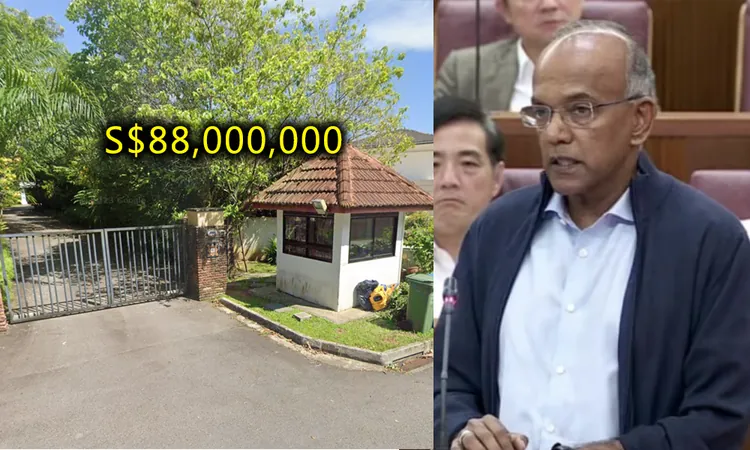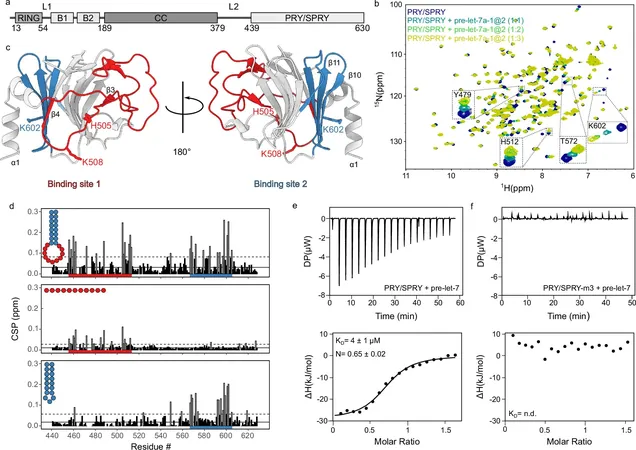
Minister Shanmugam's Mysterious Silence Amid Controversial S$88 Million Property Sale Raises Eyebrows
2024-10-03
Introduction
In a surprising turn of events, Singapore's Minister for Home Affairs and Law, K Shanmugam, is drawing scrutiny over his recent silence regarding the sensational S$88 million sale of his Good Class Bungalow (GCB) at 6 Astrid Hill. This significant transaction, taking place in August 2023, raises important questions about transparency and accountability within the country's leadership.
Historical Context
Historically, Minister Shanmugam has been quick to address allegations levied against him, as demonstrated in his and Dr. Vivian Balakrishnan's prompt legal action against Lee Hsien Yang (LHY) for defamation. However, his reticence to comment on the lucrative sale that netted him an astonishing profit—transforming a property acquired for S$7.95 million into an S$88 million asset—stands in stark contrast and has left many questioning his motives.
The Timing of the Sale
The sale of the GCB occurred shortly after Shanmugam made a ministerial statement about leasing another high-profile property, a black-and-white estate at 26 Ridout Road. This estate is under the purview of the Singapore Land Authority (SLA), a statutory board that he oversees. This overlap raises potential concerns about conflicts of interest, particularly regarding who approved such a high-value sale.
Buyer Details and Responsibility
The details surrounding the buyer add layers to this unfolding story. Sold to UBS Trustees (Singapore) Ltd., the property is now part of a trust that obscures the actual beneficiaries—who could range from Singaporeans to foreigners. Given the stringent regulations governing GCBs—typically reserved for well-connected Singaporeans or foreign permanent residents with substantial economic contributions—the public demands clarity on the approval processes that underpinned this sale.
Public Reaction and Further Intrigue
Adding to the intrigue, both Shanmugam and Balakrishnan recently faced a separate fallout involving a defamation case against LHY, further casting shadows on their public image. The ministers took to social media to address a court ruling favoring them in this defamation matter, but their previous swift responses contrast sharply with their lack of discussion over Shanmugam’s property transaction, raising eyebrows.
Critical Questions Raised
The public is now left to ponder several critical questions: 1. **Was there any oversight or interference from the SLA in the property transaction?** Considering Shanmugam's ministerial position, how closely were the regulations adhered to? 2. **Who exactly are the beneficiaries of this trust?** The ambiguity here fuels speculation. 3. **Why the sudden silence from the Minister?** Public trust hangs in the balance, with many wondering why he is not engaging with the public on such a crucial financial matter.
Broader Implications
Furthermore, as Singapore grapples with issues of accountability in high places, the recent sentencing of former Transport Minister Iswaran to 12 months in prison for corruption illuminates the pressing need for integrity among public officials. With discussions about early release under Singapore's Conditional Remission System looming, Iswaran’s case serves as a poignant reminder of the consequences of ethical lapses in governance.
Conclusion
As scrutiny intensifies on Shanmugam’s financial dealings, it's clear that his upcoming responses—or continued silence—will significantly shape public perception of his commitment to transparency in both personal and ministerial dealings. If Shanmugam wishes to uphold public trust, clarity on the S$88 million property sale is not just a request but a pressing necessity. Will he break his silence? Only time will tell.






 Brasil (PT)
Brasil (PT)
 Canada (EN)
Canada (EN)
 Chile (ES)
Chile (ES)
 España (ES)
España (ES)
 France (FR)
France (FR)
 Hong Kong (EN)
Hong Kong (EN)
 Italia (IT)
Italia (IT)
 日本 (JA)
日本 (JA)
 Magyarország (HU)
Magyarország (HU)
 Norge (NO)
Norge (NO)
 Polska (PL)
Polska (PL)
 Schweiz (DE)
Schweiz (DE)
 Singapore (EN)
Singapore (EN)
 Sverige (SV)
Sverige (SV)
 Suomi (FI)
Suomi (FI)
 Türkiye (TR)
Türkiye (TR)